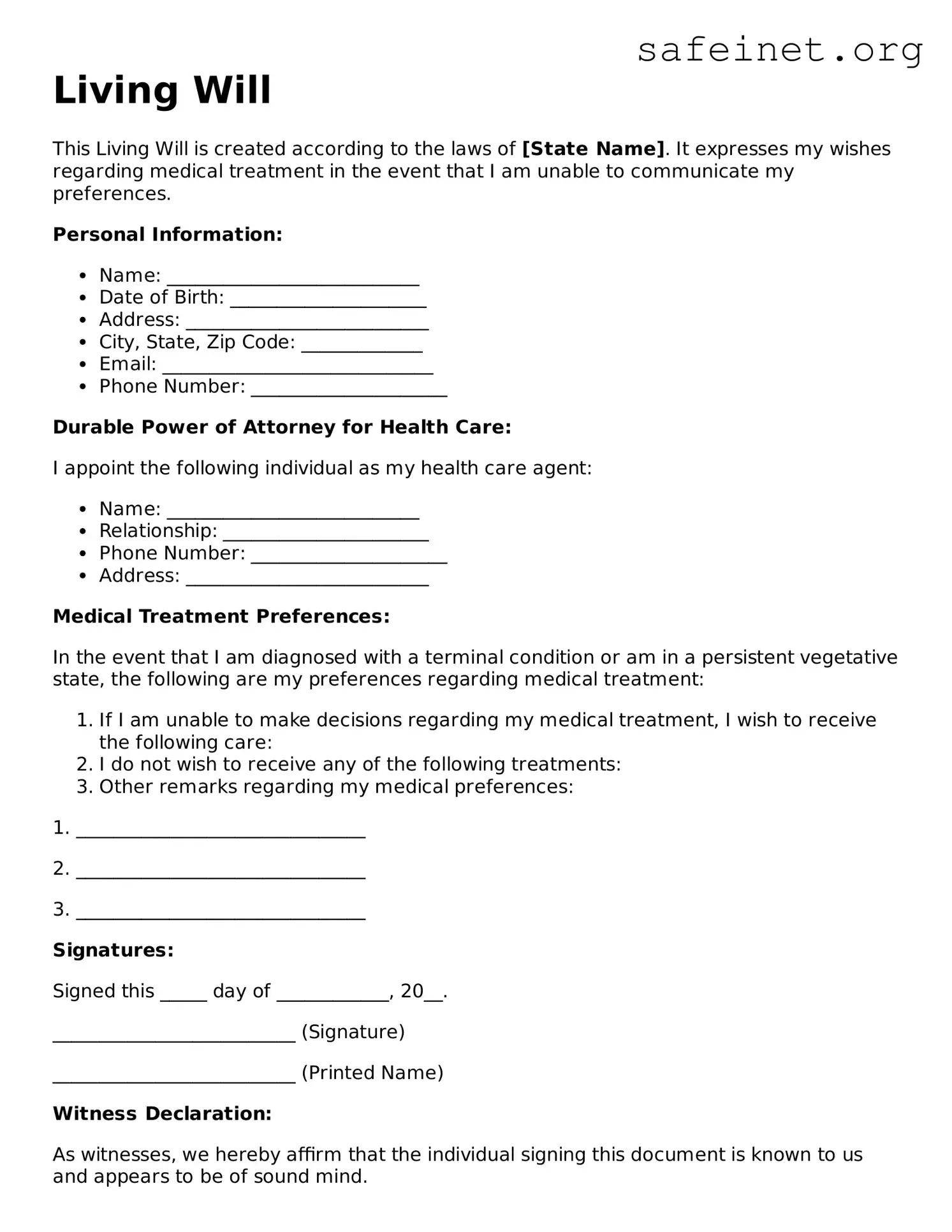What is a Living Will?
A Living Will is a legal document that outlines your preferences for medical treatment in case you become unable to communicate those wishes yourself. It typically covers situations where you may be terminally ill or permanently unconscious. This document allows you to express your desires about life-sustaining treatments, such as resuscitation or mechanical ventilation.
Why should I consider creating a Living Will?
Creating a Living Will allows you to maintain control over your medical care when you cannot express your wishes. It relieves your family members from making tough decisions during emotionally challenging times. Additionally, it ensures that healthcare providers follow your preferences, aligning treatment with your values and beliefs.
Who should have a Living Will?
Anyone over the age of 18 should consider having a Living Will. Accidents and sudden medical emergencies can happen to anyone at any time. Having this document in place ensures that your wishes are known, regardless of your age or health status.
How do I create a Living Will?
To create a Living Will, start by discussing your healthcare preferences with family members and your healthcare provider. Use a standard form that complies with state laws. Ensure you provide clear instructions regarding life-sustaining treatments. After completing the form, sign it in front of witnesses, as required by your state’s laws.
Can I change or revoke my Living Will?
Yes, you can change or revoke your Living Will at any time as long as you are mentally competent. To make changes, complete a new Living Will and ensure that it clearly states your updated wishes. Destroy any previous versions of the document to avoid confusion.
Is a Living Will the same as a Power of Attorney for healthcare?
No, a Living Will and a Power of Attorney for healthcare serve different purposes. A Living Will specifies your medical treatment preferences, while a Power of Attorney designates someone to make healthcare decisions on your behalf if you are unable to do so. You can have both documents to ensure comprehensive coverage of your healthcare wishes.
How should I store my Living Will?
Store your Living Will in a safe yet accessible place. Provide copies to your healthcare provider, family members, and anyone involved in your medical care. Some people choose to keep a digital copy as well, but ensure it is easily retrievable in emergencies.
Can I talk to my doctor about my Living Will?
Absolutely, discussing your Living Will with your doctor is encouraged. They can help clarify your healthcare options and ensure your wishes are well understood. Open communication with your healthcare team ensures that everyone is aligned with your preferences, leading to better care during critical moments.
